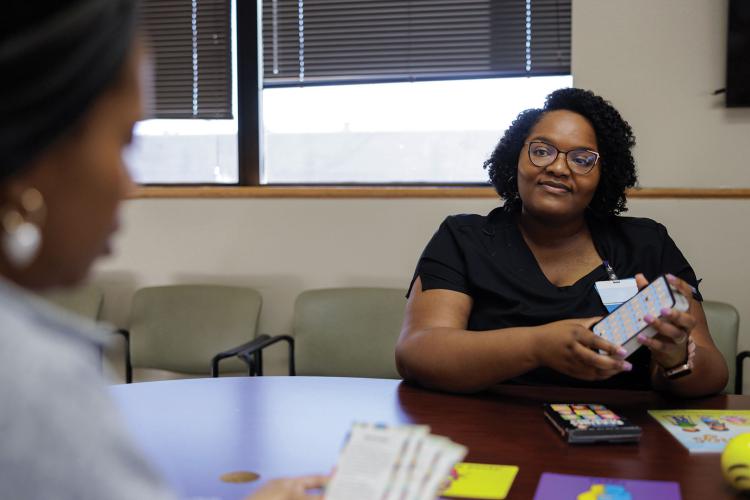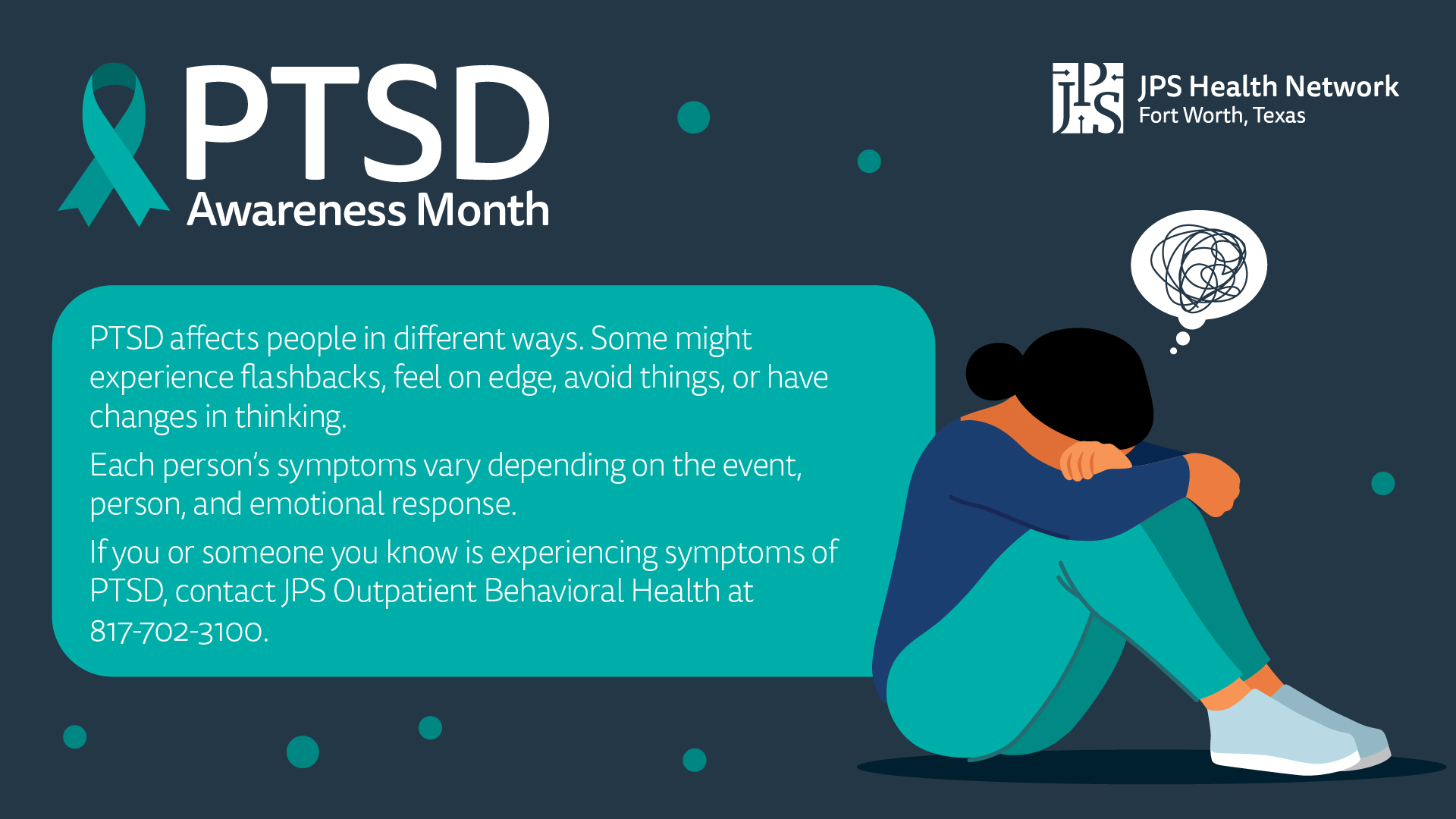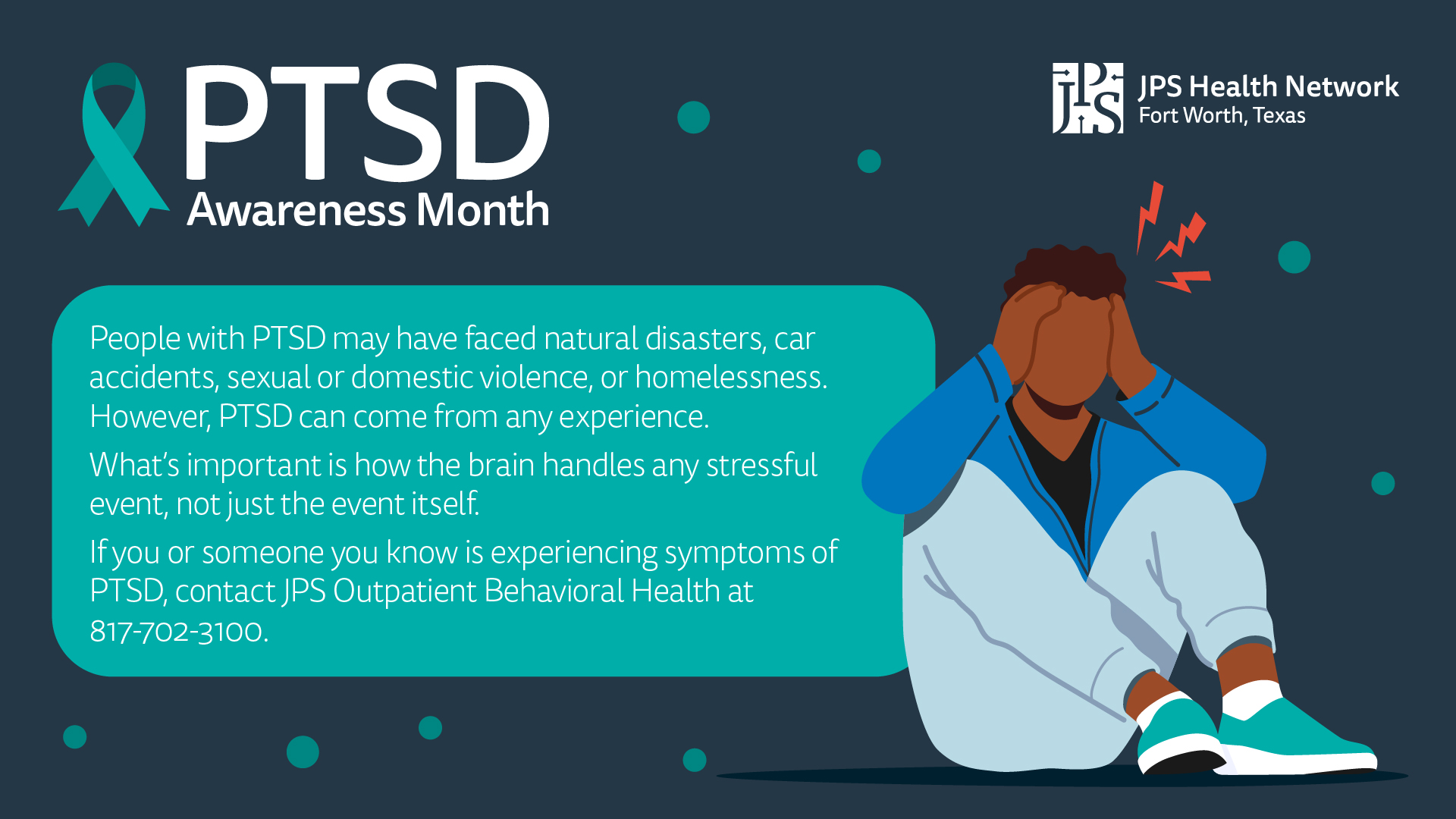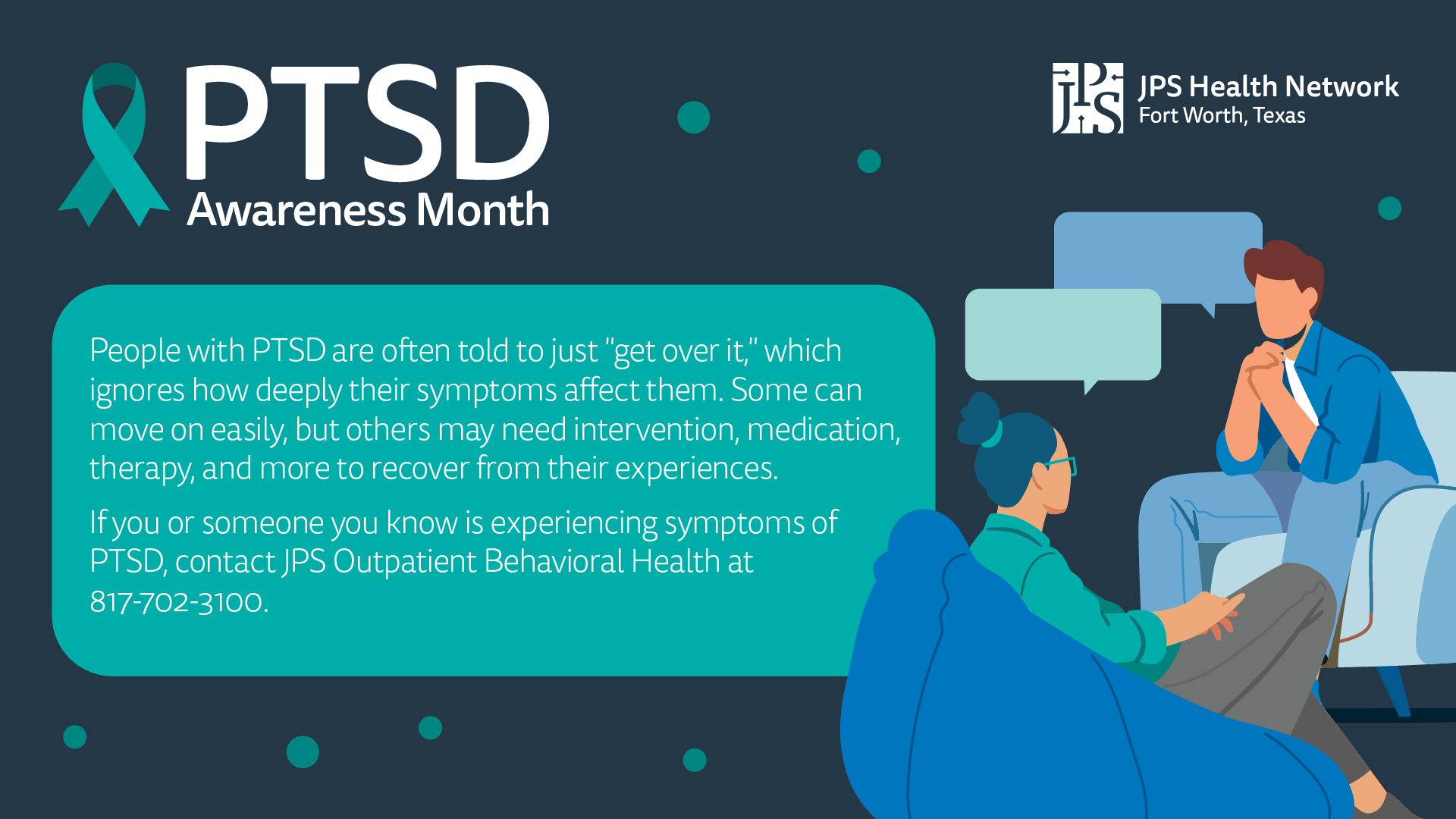
As human beings, it is likely that each of us has, or will, experience some level of trauma within our lifetimes. Trauma is the emotional response one has to a distressing event and can look vastly different in everyone.
The way individuals process these events is broadly divergent. The development and recurrence of these symptoms can be identified as Post Traumatic Stress Disorder (PTSD), a behavioral disorder that benefits from treatments like psychotherapy.
"Under normal conditions, people react to a threat with a temporary increase in stress hormones. The hormones dissipate after the threat ends, and the body returns to normal. The stress hormones of traumatized individuals take much longer to return to baseline and spike quickly and disproportionately in response to mildly stressful situations or triggers. PTSD can look like a multitude of things for different individuals, but it's obvious that its implications reach far beyond just feeling down," said Cindy Do, DO, PGY-3, Psychiatry
At JPS Health Network, team members have committed to providing services to patients who seek assistance navigating through the emotions that follow a traumatic event. The JPS Center for Behavioral Health Recovery plays a crucial role in the road to recovery for many PTSD patients.
"Human beings are wildly resilient, but it is important to remember that needing help is okay. Many of our patients have experienced some type of trauma in their lives. Treating PTSD is a significant part of what we do here," said Jenessa Englishbee, Manager, Outpatient Behavioral Health.
Education surrounding PTSD is vital because it allows others to seek help. Often, mental health disorders are stigmatized due to a lack of understanding. However, these stigmas marginalize the population of patients who may need access to services like the Center for Behavioral Health Recovery.
“If you or someone you know is suffering from PTSD, please know that treatment does exist, and things can get better.”
A critical piece of the stigmas about PTSD deals with the inability to identify the disorder based on one's actions. When dealing with PTSD, it can be difficult to define it as a single set of symptoms. PTSD can cause flashbacks, high alertness, avoidance, and changes in thinking. However, everyone with PTSD will experience symptoms differently depending on the event, person, and emotional response.
"Every person has different levels of capability based on their genetic makeup, the environment we were raised in, and the support we receive. The same traumatic event could happen to two people, but the reaction could be entirely different. The symptoms of PTSD will not be the same because our brains interpret feelings differently. Even though PTSD may not look the same across the board, it doesn't change the fact that someone has the disorder," Englishbee says.
PTSD commonly faces characterization, which can be detrimental to spreading knowledge about the disorder. Trauma comes in all shapes and sizes and doesn't only affect one category of people. Frequently, PTSD is referred to in the case of veterans who have faced combat. While this is one form of trauma, it is not the only form of PTSD.
Those who have PTSD may have experienced things like natural disasters, car crashes, sexual or domestic violence, and homelessness. Still, no number of categories can compensate for the types of events that cause PTSD.
The most common myth about this disorder is that there are specific events that lead to the development of PTSD. It is crucial to understand that rather than the event itself, it's the brain's reaction and ability to process an event that is fundamental for understanding PTSD.
"One of the most important things about PTSD is to realize that it's not exclusive to one group of people. Anybody can be affected by PTSD. More of what we see here at JPS deals with childhood trauma, emotional abuse, and physical abuse. The effects of those events can last well into someone's lifetime," said Emily Wills-Thames, Licensed Clinical Therapist
When we begin to succumb to the stigma that PTSD only affects one rationale, we limit the number of people who realize they could identify with the disorder. In turn, people who are unknowingly experiencing the effects of PTSD are left without options for care.
Understanding such a complex disorder can seem daunting. However, when you begin to see through the eyes of others, you start to open doors for conversations about disorders that cannot be seen. Disorders like PTSD often get overlooked or discredited because it's not a condition that you can physically see.
This thought process is the foundation of another harmful stigma that PTSD faces. Many are told to "just get over it," invalidating the all-to-real experience of PTSD symptoms. When people experience feelings that affect them internally, it is challenging to understand the depth of those feelings. For some, their experiences are more straightforward to move on from. However, for others, "moving on" from these experiences requires intervention, medication, therapy, and much more.
"Even though mental illness is commonly thought to be invisible or unseen, it can have observable and measurable effects, leading to several medical conditions, including chronic pain, high blood pressure, gastrointestinal disorders, and sleep disorders. Treating PTSD is just as essential as treating any other medical condition," said Do.
In the realm of mental health, it is imperative to understand the complexity of the brain. Humans are meant to have different feelings, reactions, and perspectives than our peers. This means that the way we react to our environment and trauma will often differ. Thus, opening one's mind to understanding the minds of others enables everyone to get the support they need.
"The hardest step about starting something like therapy is realizing that the stigmas surrounding it aren't true. It's okay to talk to your doctor about feelings you've noticed and question whether therapy is right for you. Seeking help and getting therapy does not have to be a scary experience. We want to see you get better," Wills-Thames says.
JPS offers services for those who need emotional support, especially during trying times. Though lesser known, therapy, mental illness, and behavioral effects are all matters that deserve to be addressed. The more we talk about these conditions, the less scary they become.
“If you or someone you know is suffering from PTSD, please know that treatment does exist, and things can get better,” said Do.
If you or anyone you know is experiencing symptoms of PTSD, connect with care at 817-702-3100.
Visit the JPS Behavioral Health Services page for more information.



